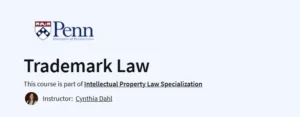What will you in the Foundations of Teaching for Learning: Introduction to Student Assessment Course
Understand the fundamental principles and purposes of educational assessment.
Differentiate between formative and summative assessments and their applications.
Develop effective feedback strategies to enhance student learning.
Design and implement both objective and judgment-based assessment tools.
Incorporate self-assessment and peer-assessment techniques to foster student engagement.
Ensure cultural sensitivity and fairness in assessment practices.
Program Overview
Module 1: An Introduction to Assessment Theory and Practice
Duration: ~2 hours
Explore global perspectives on the purposes of assessment.
Examine how assessment integrates with curriculum and teaching.
Consider cultural influences on assessment practices.
Module 2: The Nature of Feedback in Improving Teaching and Learning
Duration: ~2 hours
Identify characteristics of effective feedback.
Understand teacher and student perceptions of feedback.
Develop strategies for providing constructive feedback.
Module 3: Reporting Student Achievement
Duration: ~1 hour
Analyze current approaches to reporting student performance.
Evaluate the validity of standardized test scores.
Learn techniques for writing effective reports and providing meaningful feedback.
Module 4: Developing and Using Objective Assessment Procedures
Duration: ~2 hours
Design multiple-choice questions and other objective assessment tools.
Understand the importance of question quality in measuring student understanding.
Avoid common pitfalls in objective test design.
Module 5: Developing and Using Judgment-Based Assessment Procedures
Duration: ~2 hours
Explore the use of rubrics and essays in assessment.
Address challenges in designing and evaluating open-ended assessments.
Ensure reliability and validity in judgment-based assessments.
Module 6: Involving Students in Assessment
Duration: ~1 hour
Implement self-assessment and peer-assessment strategies.
Create assessment tasks that promote student involvement and learning.
Consider important factors when preparing student-involved assessments.
Get certificate
Job Outlook
Educators: Enhance assessment literacy and improve instructional practices.
Curriculum Developers: Integrate effective assessment strategies into curriculum design.
Educational Administrators: Implement fair and comprehensive assessment policies.
Teacher Trainers: Provide professional development on assessment best practices.
Education Researchers: Explore assessment methods and their impact on learning outcomes.
Specification: Foundations of Teaching for Learning: Introduction to Student Assessment
|





